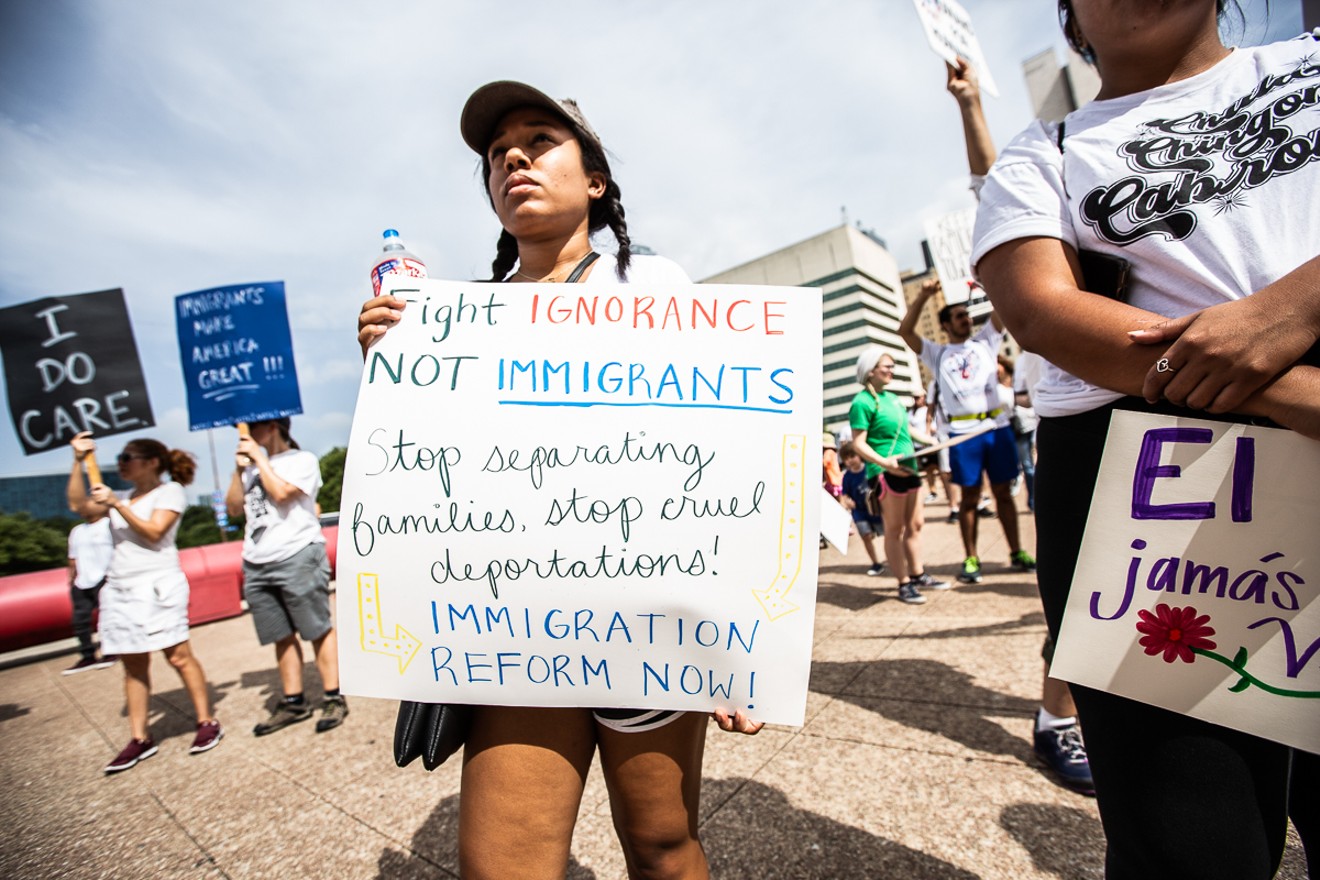The report focuses on "mixed-status" families in the Rio Grande Valley. Mixed status families are those in which children who are U.S. citizens have at least one parent or guardian who is in the United States illegally.
Uncertainty about potential interactions with law enforcement can cause physical and mental health problems for both children and adults, the study found, in addition to making it less likely that mixed-status families will seek important medical care.
To collect data for the study, Human Impact Partners and La Unión del Pueblo Entero, an immigration advocacy group in the Valley, surveyed 212 families affected by the U.S. immigration system and conducted a series of focus groups about the aftermath of the sanctuary cities law, better known as SB 4.
Researchers found that, among the families surveyed in which at least one parent was undocumented, 29 percent of children experienced severe stress. Nineteen percent, about four times the national average, of all families participating in the study reported children experiencing symptoms of PTSD, while 40 percent of undocumented parents surveyed said their children have attempted to avoid school since SB 4 became law in September.
"Parents and kids are terrified that a small lapse while driving or a broken tail-light could lead to deportation. This is really creating this fear and anxiety that is a toxic stressor," Ana Téllez, Human Impact Partners' communications director, said Wednesday. "We know from past research that children who experience separation from a parent are at a risk for poor health outcomes over the rest of their lives."
Researchers found that 1,800 U.S. citizen children in the Rio Grande Valley had a parent deported by immigration officials in the 2017 fiscal year.
"Unfortunately, local police enabled many of these forced family separations through their cooperation with federal immigration authorities ... SB 4 has now formalized and expanded this collaboration to every city and county in the state of Texas," La Unión del Pueblo Entero strategist Tania Chavéz said.
Samuel Peña, a physician's assistant, told researchers in an interview that children in mixed-status families miss out on specialized healthcare because their parents hope to avoid a potential interaction with law enforcement at a border checkpoint."Kids don’t get the treatment they need. We don’t have a lot of specialty down here." — Samuel Peña
tweet this
"Sometimes the kids that are born here, sometimes they need to go to San Antonio, Houston, one of the cancer centers … But the parents aren’t allowed to go … They are denied access to cross the checkpoint," Peña said. "Consequently the kids don’t get the treatment they need. We don’t have a lot of specialty down here."
Texas Republicans argued for and passed SB 4 because they said it was an essential tool to fight crime committed by undocumented immigrants and ensure the enforcement of federal immigration law. The state's major cities, including Dallas, have sued the state over the bill, claiming that the law undermines local control and creates a climate of fear for Latino residents.
As the fight over the law plays out in court, the authors of the study recommend that municipalities that oppose SB 4 prioritize resources toward local law enforcement issues, rather than immigration, increase the use of "cite-and-release" during traffic stops and accept alternative forms of identification — like municipal IDs — for those otherwise undocumented drivers who get pulled over.












